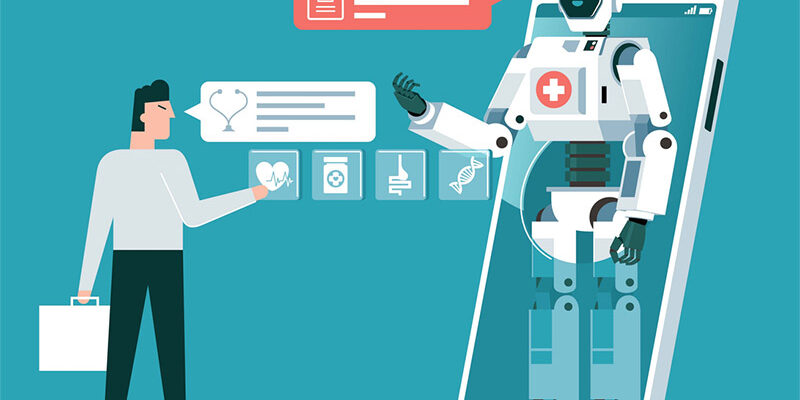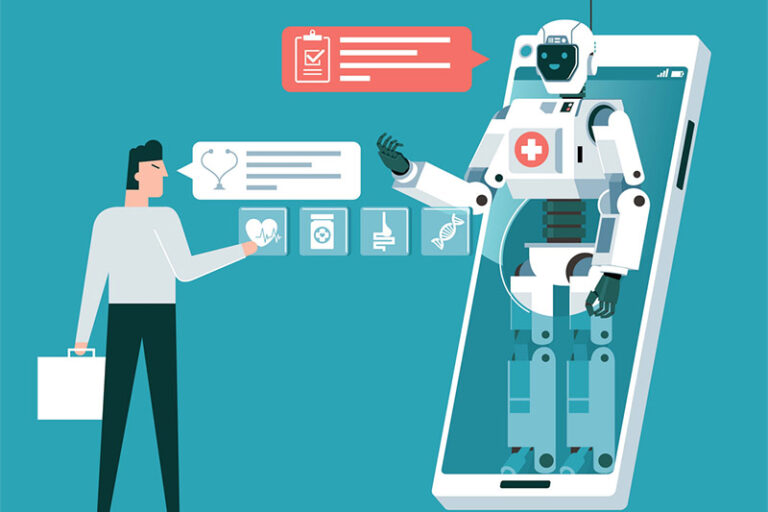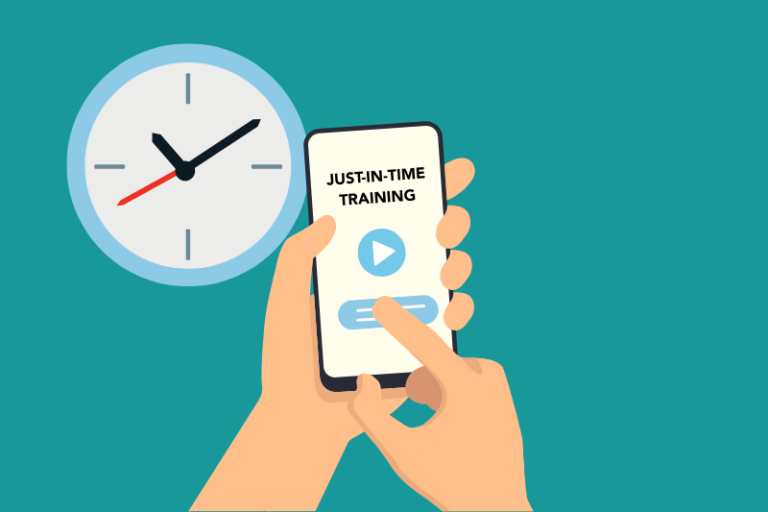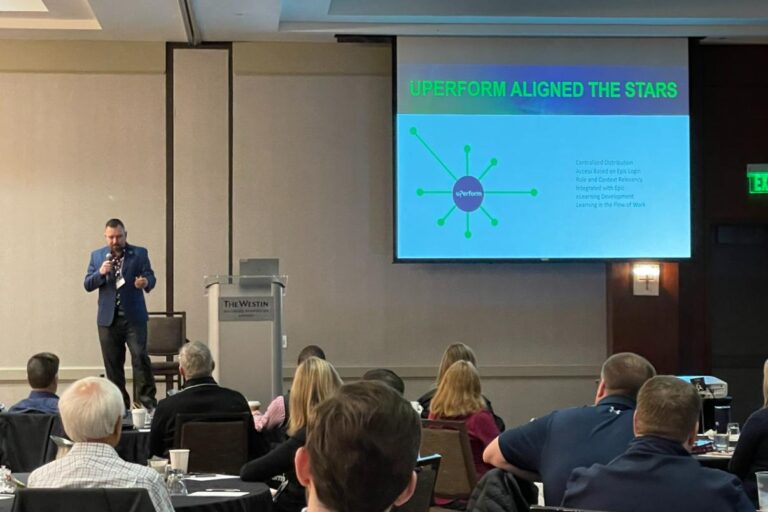Artificial Intelligence (AI) has been all the rage this year, and uPerform is joining the conversation. Tune into this Becker’s Healthcare podcast episode to hear Dr. CT Lin, CMIO at UCHealth, and Bobby Zarr, VP of Healthcare Strategy at uPerform, discuss how AI may shape the future of workplace learning in healthcare. The two discuss the potential, and limits, of AI technology and how it can be harnessed to enhance learning experiences for clinicians, identify learning gaps, reduce time spent in training and accelerate the creation of learning content.
Short term benefits of AI for healthcare IT learning
Both Dr. Lin and Zarr agree that AI holds significant potential for healthcare IT education, but they caution against setting expectations too high, particularly in the short term. Dr. Lin notes that collectively, we tend to place too high of expectations on new technologies, expecting them to “solve everything.” He believes that technology always underperforms in the short term and outperforms in the long term.
Reservations aside, Dr. Lin and Zarr do see AI providing real value to clinicians and development teams soon. They shared multiple use-cases they see on the horizon, both in the short and long term.
In the short term, Dr. Lin sees AI improving search functionality for clinical users. AI can leverage user data and location in the system to deliver relevant content more quickly than traditional searches. Zarr aims to leverage AI to accelerate content creation for uPerform authors and automate meta-tagging to save time and improve relevancy.
The future of AI in IT education
Longer-term, the two believe AI can play a more holistic role in a clinician’s learning journey. Dr. Lin touts the success UCHealth has had in its transition to a just-in-time learning strategy for Epic. He believes AI can take this strategy to the next level by leveraging user data (Epic Signal for physicians and NEAT for nurses) to provide users with automated recommendations to improve productivity and proficiency. For example, AI may be able to recognize a clinician is taking more steps than necessary to complete a specific workflow and suggest a tip sheet with the proper steps.
Dr. Lin doesn’t shy away from the value a use-case like this could present. He notes that by switching to a just-in-time learning strategy with the help of uPerform, UCHealth has drastically reduced the time clinicians spend in initial training. With just-in-time support available in the clinical workflow, UCHealth covers the basics of Epic training during onboarding. Then, users complete a self-paced initial training in just a few hours. After that, users reference the just-in-time materials as needed. This just-in-time strategy reduced the overall time new hires spend in onboarding from 8 classroom hours to just 2-3 hours of self-paced learning.
This strategy isn’t just limited to onboarding, however. Dr. Lin uses another example to illustrate AI’s potential. They recently introduced a new workflow, called Message Appointments. With the help of uPerform, UCHealth was able to include a link to a 60-second video and tip sheet directly in the Message Appointments workflow to help facilitate clinical adoption of the new tool. AI has the potential to scale the delivery of workflow-level support. Considering the potential, Dr. Lin ponders whether AI-served learning content could eliminate the need for onboarding altogether:
“If we project forward a couple of years, could it be that we get to the point where training for onboarding is just ‘Here’s your login. Don’t give it away. Here’s where all the PCs are. And here’s where you call us if you have a problem.’ There’s no other training, because you learn it on the job, and the system actually coaches you through it.” – Dr. CT Lin, CMIO, UCHealth
Balancing human experience with Artificial Intelligence
For those worried about AI replacing humans any time soon, Zarr and Dr. Lin recommend that trainers fear not. While AI can offer a lot of value to healthcare system’s learning and development departments, it’s not poised to replace humans anytime soon.
“…AI does not do well when it encounters minor exceptions…[it] has no real experiential knowledge to base its decisions on…It’s hard for any technology, no matter how intelligent, to replace the empathy, intuition [and] coaching power of an experienced trainer.” — Bobby Zarr, VP, Healthcare Strategy, uPerForm
Dr. Lin adds to this sentiment, sharing that he believes “…the sweet spot is to use an AI as a junior assistant. We like to think about it like a really smart medical student helping you do your work, and you go ‘That looks good. That doesn’t look good.’”
It’s important to note that AI is still in its infancy, relatively speaking. It’s hard to predict how effective health systems and tech vendors will be at leveraging it for everyday use or what that timeline will look like. While Dr. Lin and Zarr are confident in its potential to improve the learning experience for clinicians, they emphasize the importance of striking the right balance between human interaction and AI-driven training to ensure that it is being used effectively and responsibly in healthcare.
Discover uPerform for healthcare
Looking for an all-in-one healthcare learning platform that supports your staff while they work? uPerform integrates with leading EHR platforms, as well as other mission-critical software applications, to deliver just-in-time learning opportunities to users in their workflow. Onboard new hires faster, guide users through individualized learning pathways, assign eLearning courses and improve clinician satisfaction with the EHR with uPerform’s just-in-time learning capabilities.









